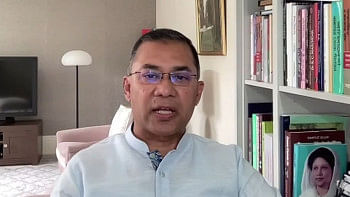Personal data still in danger

It is gravely concerning that even after multiple incidents of data leakage from government servers, the authorities are continuing to ignore the crisis of cybersecurity in the country. We are still hearing about data theft, that too by government staff, which is clear evidence of negligence. The latest incident came to light when police on Tuesday arrested two members of a cybergang that offered "services" such as changing information in the National ID server and locating people by phone triangulation. The gang operated with assistance from unscrupulous staffers at the Election Commission and other government offices.
The ease with which the criminals operated is quite frightening. They were able to avail these services via websites and encrypted messaging apps. This just shows how this group was operating right under the authorities' nose, and points to the possibility of many more gangs currently being active. Surely, authorities know that such crimes have far-reaching consequences. For instance, by manipulating NID information and using fake documents, fraudsters can open bank accounts and get loans, as has been done before. Besides, then authorities should be greatly worried about the fact that a section among them are involved in these crimes. Police said changing personal data on the NID server requires the credential of high-level Election Commission officials, which means the bad apples have climbed the ladder and are now abusing their powers.
In June 2023, TechCrunch revealed that personal information of about 50 lakh Bangladeshi nationals had been leaked from a government website. One would have guessed that the news would serve as a wake-up call. But mere months later, in October, this newspaper reported that personal information of smart NID card holders—5.5 crore people—was available in the messaging app Telegram. And since then, news of cybergangs providing such services have made headlines several times. Clearly, the authorities have not woken up. How many more breaches and leaks will it take?
These incidents imply that the administration, in its quest of digitalisation, does not have the necessary expertise or diligence to ensure data security. It is reluctant to take accountability for its negligence, as in the case of breaches centring NID. But ultimately, the government, which seems to only be concerned about acquiring private information, is responsible for protecting the data of the country's citizens. We urge the authorities to urgently address this issue by apprehending the criminals, weeding out officials and staff involved with such crimes, and bolstering the data security infrastructure in consultation with experts.


 For all latest news, follow The Daily Star's Google News channel.
For all latest news, follow The Daily Star's Google News channel. 









Comments